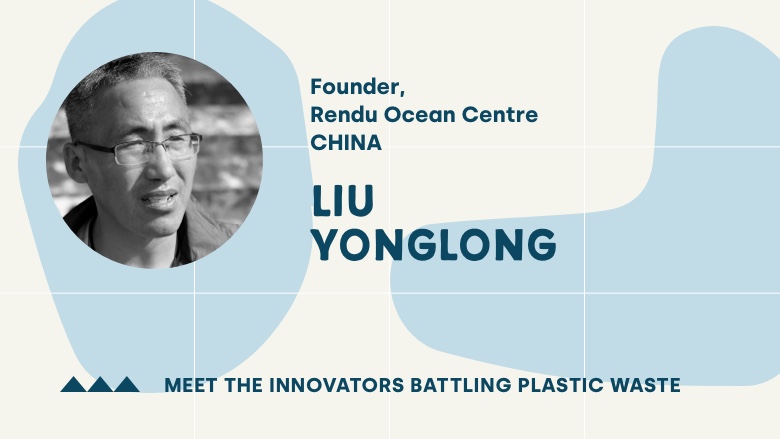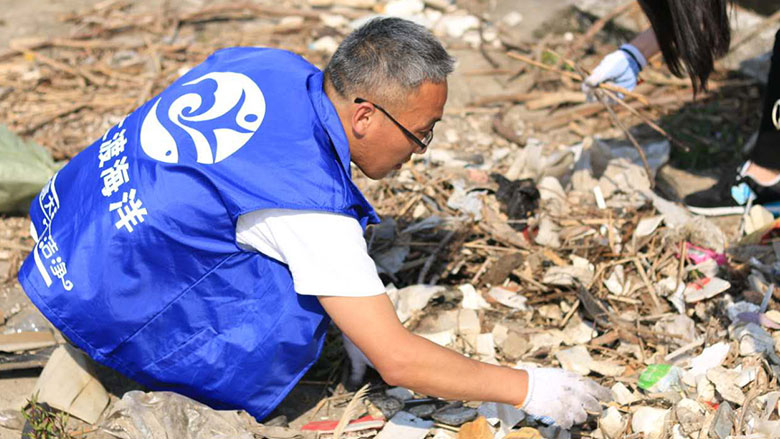Liu Yonglong is the founder of Rendu Ocean, a non-profit organization in mainland China that focuses on marine debris. Their activities include work to clean up marine debris, monitoring and research, supplemented by environmental education and working with NGOs.
Tell us about yourself, and your project.
I graduated from the Law Department of Fudan University. When I was at university, I joined and organized student organizations, which was the beginning of my public service work. After graduation, I worked in a state-owned enterprise and continued to participate in public service activities.
Since 2013, I have been working at Rendu Ocean full time and focus on marine environmental protection.
Shanghai Rendu Ocean NPO Development Center (or Rendu Ocean for short) is a non-profit organization in mainland China that focuses on marine debris issues. It was founded in 2007 and registered as private non-profit in 2013.
Our activities include work to clean up marine debris, monitoring and research, supplemented by environmental education and working with NGOs. We have worked extensively in cooperation with Chinese and international NGOs, and are one of the most active promoters of sector-wide cooperation and development.
Our goal is to be one of the most professional NPOs in the area of marine debris in China.
How is plastic waste an issue for oceans/waterways in China?
The high efficiency and low cost of plastics make it a widely accepted and commonly used material in the manufacturing sector around the world. As the world’s largest manufacturer and supplier, China is inevitably one of the major producers of plastic products. With a large population, China is also one of the largest consumers of plastics. China has vast sea areas from the Bohai Sea, Yellow Sea to the East and South China Sea, and many rivers enter these seas. People everywhere in the world like to live near water. The coastal areas and river basins usually have a high concentration of population and economic activities.
At the same time, many populous countries in the East Asia and Pacific border on the seas. As a result, the plastic waste generated by human activities near these seas poses a pressure and challenge to the marine environment and its eco-systems.
Therefore, the ocean is indeed a common good of humanity.
When did you first get involved in trying to address this issue?
When I was working in a state-owned enterprise in 2001, I spent my spare time on public service work. I initiated an environmental NGO then. In 2007, with support from the United Nations Environment Programme (UNEP) and the State Environmental Protection Administration, Rendu Ocean organized our first beach cleanup. It was my first time getting involved with marine debris. From then, I started paying attention to the problem, and have gradually made it an organizational and personal mission to deal with it.



